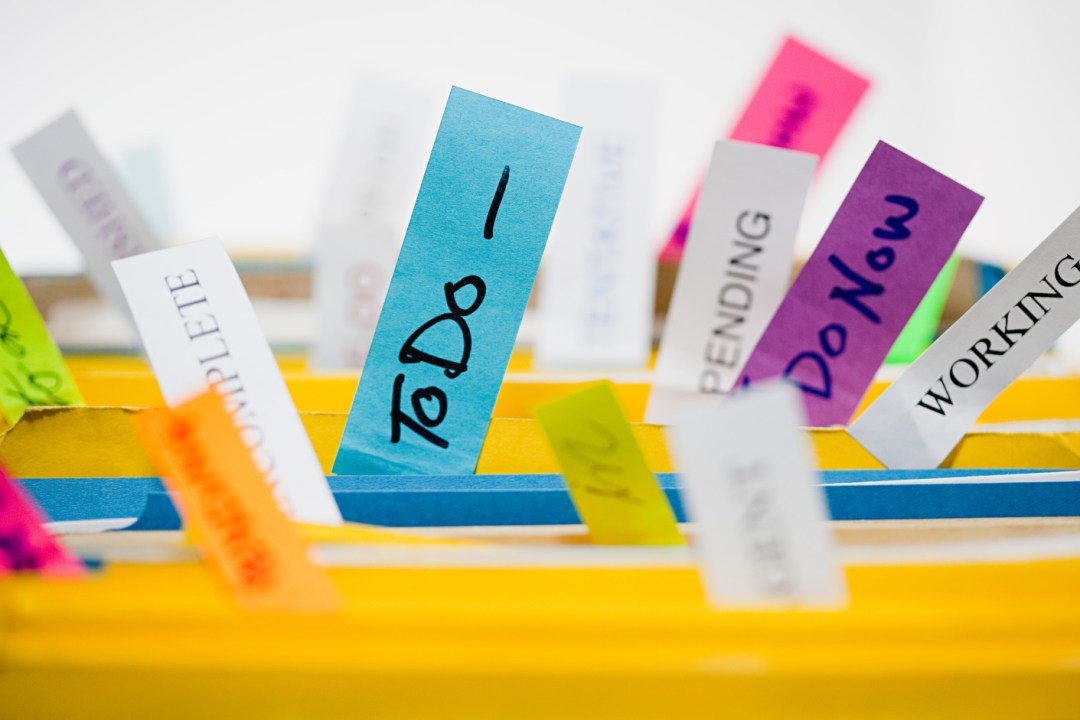How to get – and stay – organised
Every month, Oliver Burkeman invites you to improve your work life - this time, how organised do you need to be?

The project
As the happiness writer Gretchen Rubin puts it, it’s true that ‘outer order contributes to inner calm’. On the other hand, it’s easy to waste hours chasing organisational perfection or feel guilty for being messy. Start with this question: what do you want to get organised for?
The aim
Society attaches great moral value to being ‘neat and tidy’, but there’s no virtue in having a spotless desk for the sake of it. Let go of the guilt and focus on getting as organised as you need to be – and no more. Clearing your desk, making lists and filing all take time. So they’re only worth doing if they save you more time – or stress – later on.
The theory
The only real advantage that ‘organised people’ have over disorganised at work is that they know where to find things when they need them – whether that’s paperwork, a stapler, an email, a list of today’s meetings, or the tuna salad they brought in for lunch. The trick is to devise a system that a) doesn’t take much maintaining, and b) reflects how your mind works. For example, if you use the same five files every day, keep them in a stack on your desk, if your workplace allows it. For electronic stuff, including email, don’t bother with multiple folders; save things in a single archive folder, then rely on the search function to find them. Delete or throw away anything you know you won’t need again. Above all, keep a single diary, for home and work, or you’ll lose track, and cause chaos.
Try it out
- Create a ‘holding zone’. Nominate a corner of your desk or the top of a filing cabinet, then dump anything that needs putting away there. Deal with it at the appointed time (below).
- Devise an organising routine. Schedule 10-15 minutes at the start or end of each day to rattle through a list: clear your desk, archive emails, empty the holding zone (above). Professional organiser Emily Wilska suggests creating a dedicated tidy-up playlist for your MP3 player.
- Beware ‘organisation procrastination’. As even pointless organising feels useful, it’s easy to avoid real work by telling yourself you’re ‘clearing up’. Ask yourself honestly if your time’s best spent tidying or filing right now. If the answer’s no, stop.
OLIVER BURKEMAN is the author of The Antidote: Happiness for People Who Can’t Stand Positive Thinking (Canongate, £8.99)
Join us! Share your tidying tips on Facebook.com/psychologies or on Twitter @psychologiesmag
Photograph: plainpicture/Image Source
More inspiration:
Sign up for our Life Labs Practical Wisdom online course How to Achieve Your Goals here. You can also try a free taster of the course here








